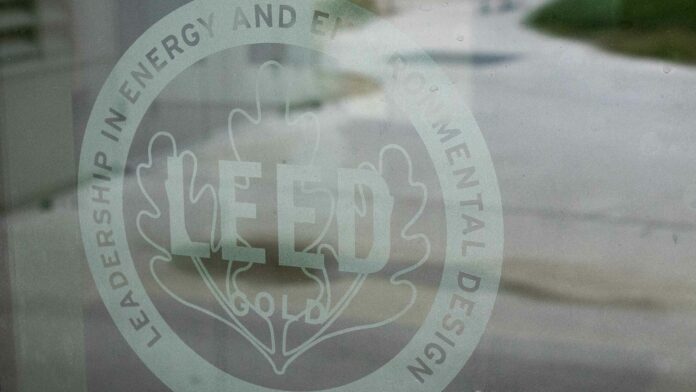UC Davis is most sustainable university in U.S., third globally, according to GreenMetric Rankings
For the third year in a row, UC Davis has been named the “most sustainable” university in the U.S. and the third most sustainable university in the world, according to the 10th annual GreenMetric Rankings.
Between May and October of 2019, the 10th annual GreenMetric Rankings analyzed and evaluated data from approximately 799 universities globally, according to its website.
The Universita Indonesia launched the UI GreenMetric World University Ranking Initiative in 2010. According to the UI GreenMetric World University Ranking website, the goal of the project is to “provide the result of online survey regarding the current condition and policies relating to Green Campus and Sustainability in Universities all over the world.”
Specifically, the Universita Indonesia hopes that “the rankings will be useful to university leaders in their efforts to put in place eco-friendly policies and manage behavioral change among the academic community at their respective institutions,” according to its website.
“We are really proud, this is our third year to lock in number three in the world,” said Camille Kirk, the director of sustainability and a campus sustainability planner. “This particular metrics ranking is getting tougher every year. It’s pretty exciting to be able to keep our ranking.
Though just a number, these rankings are significant for the university.
“They give people a real foot hole in how […] we measure up,” Kirk said. “Especially because some of these things can feel so abstract, like greenhouse gas emissions. It’s really hard to imagine metric tons of an odorless, colorless gas. But rankings can give you a sense of how [we are] doing relative to others in the world. It also gives people pride.”
As a top university for sustainability, UC Davis is in a unique position to show other universities how its sustainability model can work across the world.
“We need to be modeling what to do,” Kirk said. “We need to be researching and getting the results out to the world so that we can help translate what we’ve learned into implementable action worldwide. We also need to make sure that students are ready to go out and be the best leaders and citizens they can possibly be. That, in this era, requires having sustainability literacy.”
Setting and infrastructure, energy and climate change, waste, water, transportation and education and research make up the criteria that the UI GreenMetric World University Ranking utilizes when evaluating participating institutions, according to its website.
These overarching categories are all assigned a weight when evaluating a university: setting and infrastructure accounting for 15%, energy and climate change for 21%, waste for 18%, water for 10%, transportation for 18% and education and research for 18%.
UC Davis is currently looking at two forms of metric systems — STARS and the UN SDGs — to “guide thinking” and inform the way UC Davis “thinks about sustainability,” Kirk said.
Sustainability Tracking Assessment and Rating System, or STARS, “is a transparent, self-reporting framework for colleges and universities to measure their sustainability performance,” according to its website. The United Nations Sustainable Development Goals (SDGs) include “an urgent call for action by all countries — developed and developing — in a global partnership…that [tackles] climate change and [works] to preserve our oceans and forests,” among other things, according to the Sustainable Development Goals Knowledge Platform.
UC Davis has had myriad initiatives aspiring to improve sustainability on campus.
“We’re proposing a lot of direct action solutions, a lot of things we’re doing here at UC Davis,” Kirk said. “We are doing a lot of energy efficiency and conservation work. We’re implementing a lot of renewable energy, like our big, giant, 16.3 megawatt solar plant on campus. We’re also actively working on transportation systems for tomorrow.”
For instance, Student Housing and Dining Service buildings located in Cuarto, Segundo and Tercero areas, uphold the Leadership in Energy and Environmental Design (LEED) standards, according to the UC Davis housing website.
One highlight of UC Davis’ sustainability efforts includes the “Big Shift,” a project currently underway. According to the UC Davis website, the “Big Shift” will cut the UC Davis’ “greenhouse gas emissions and water use by changing the way the campus heats its buildings.” Essentially, UC Davis will be switching from steam to low-temperature hot water in its heating system.
Moreover, UC Davis hosts at least 283 sustainability-related events, like the Campus Sustainability Summit, according to the UC Davis website.
The Campus Sustainability Summit, held May 31, 2019, is “an inaugural event to honor the achievements of the university, award those in this community who contribute to our campus’ sustainability goals and provide student programs an opportunity to present their accomplishments over the year,” according to the UC Davis website.
“This year is the 50th anniversary of Earth Day,” Kirk said. “Our office is coordinating all sorts of collaborations with different sustainability stakeholders across campus for celebrations. We’re not looking at just one day, we’re looking at about a month worth of effort and activities.”
Looking towards the future, UC Davis will be engaging with the following upcoming actions: electrification of Unitrans, using biogas from the campus’ biodigester and installing solar thermal hot water heating for a research facility on West Campus.
Written by: Aarya Gupta — campus@theaggie.org




